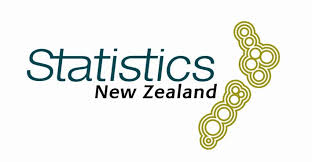Rising rents affected beneficiaries and lowest-spending households the most in the December 2019 quarter, Stats NZ said today.
Each quarter, the household living-costs price indexes calculate how inflation affects different groups in society, while the consumers price index measures price changes for New Zealanders as one group.
In the December 2019 quarter, rent rose for all household groups, including beneficiaries, Māori, and superannuitants.
Rent rose 1.1 percent in the December 2019 quarter for beneficiaries and 3.8 percent for the year. For the lowest-spending household groups, rent was up 1.0 percent for the quarter and 3.7 percent for the year.
“Rising rents had the biggest impact on beneficiaries than any of the other household groups we look at each quarter,” consumer prices manager Sarah Johnson said.
“Beneficiary households spend about one-third of their money on rent, compared with less than one-fifth of expenditure for all other households.”
Rent makes up more than 18 percent of the outgoings of the lowest-spending households compared with about 4 percent of the highest-spending households.
This means rising rents this quarter had relatively little impact on highest-spending households. These households are often homeowners and have benefitted from lower mortgage interest rates in the past year, with the lowest overall annual rate of inflation compared with the other household groups.
The group with highest annual rate of inflation was the lowest-spending households, which increased 2.4 percent over the year.
Seasonal rises in overseas travel drive inflation for highest-spending households
Higher transport costs had a greater effect on highest-spending households in the December 2019 quarter. Their overall costs rose 0.5 percent, compared with 0.3 percent experienced by all households as one group.
“Higher prices for international airfares and accommodation services had the largest impact on the highest spending households,” Mrs Johnson said.
Consumers price index: December 2019 quarter showed international airfares rose 9.3 percent, the biggest contributor to overall inflation in the December quarter.
In the past 12 months, inflation for the highest-spending households increased 1.0 percent. This was the smallest annual increase among all the household types measured, mainly influenced by rises in health insurance and accommodation services, and offset by falling spending on mortgage payments due to lower interest rates.
Correction to domestic air transport class
We have revised HLPIs series in response to an error in domestic air transport class back to the March 2017 quarter. The revised series has changed by up to 1 index point at the households level. See Household living-costs price index: December 2019 quarter for more information about this error.
The Government Statistician authorises all statistics and data we publish.
For more information about these statistics:
- Visit Household living-costs price indexes: December 2019 quarter
- See CSV files for download
- Open the attached files
Tables (Excel)
(See attached file: household-living-costs-price-indexes-december-2019-quarter.xlsx)





